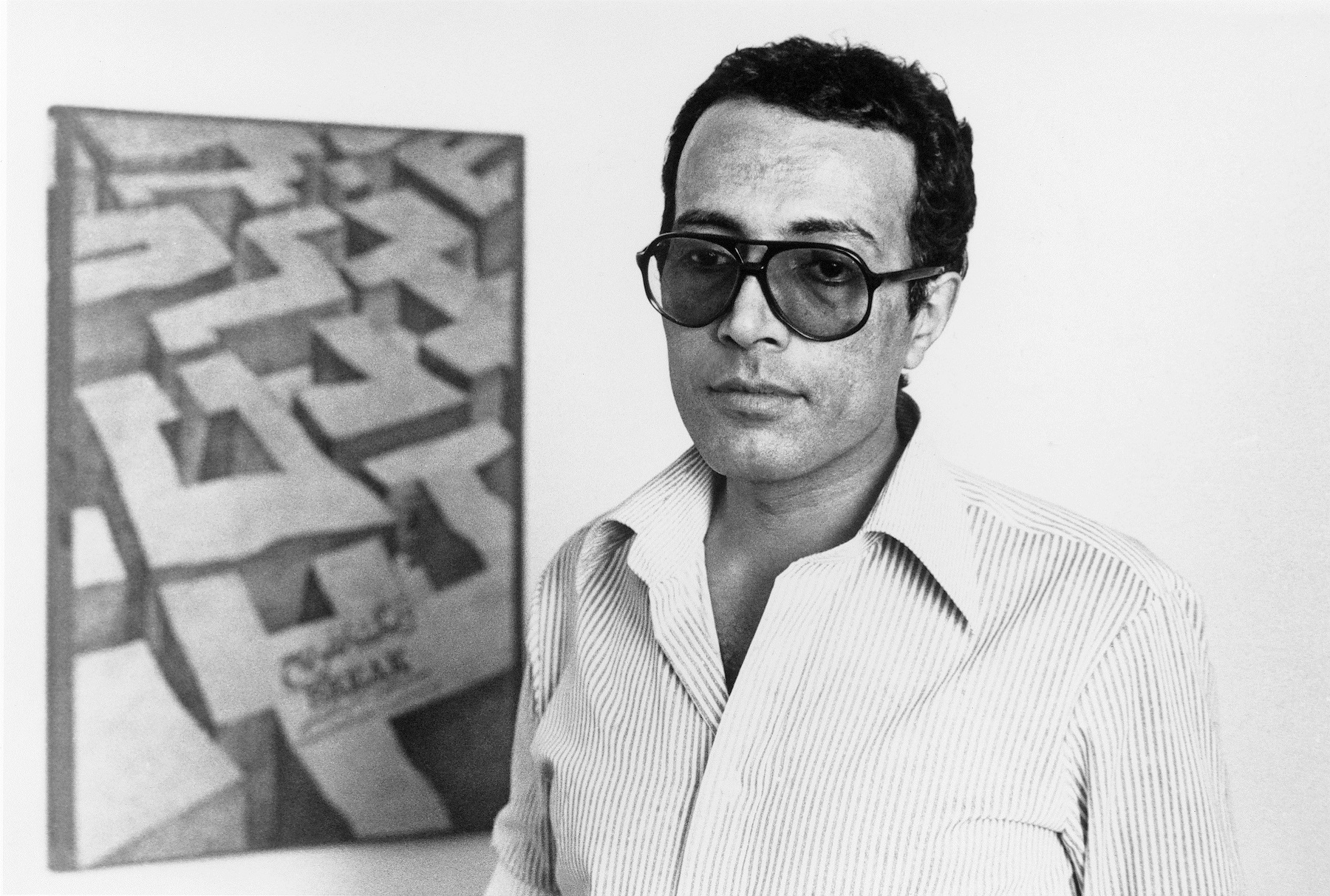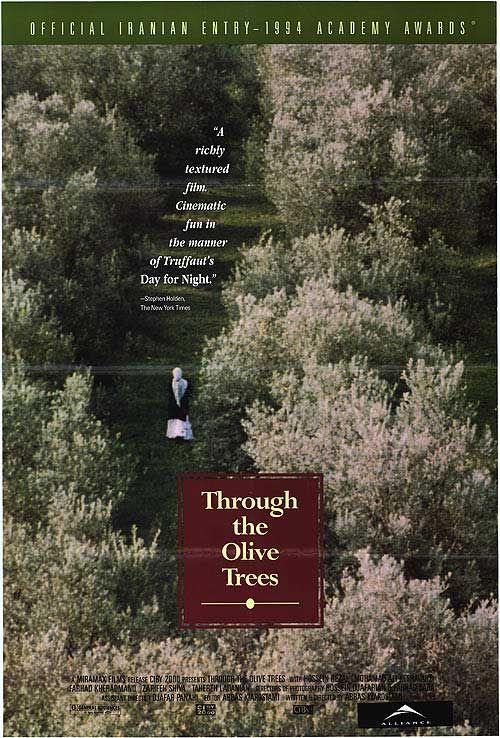Happy 75th, Abbas!
 Monday, June 22, 2015 at 6:00PM
Monday, June 22, 2015 at 6:00PM Amir here, to wish the happiest of birthdays to one of the masters. For all the success of Iranian cinema throughout the 90s and the emergence of several filmmakers who were lauded at international film festivals, the country's cinema had become, for better and for worse, synonymous with one man's name: Abbas Kiarostami. This has somewhat changed in recent years, with Kiarostami taking increasingly longer periods between projects and Jafar Panahi (This is Not a Film, Closed Curtain) and Asghar Farhadi (A Separation, About Elly) receiving so much attention, but ask any cinephile who their favourite Iranian director is and chances are you're going to get the same response you did twenty years ago.

Kiarostami turns 75 today, and to celebrate his birthday, we're going to suggest five films from his vast filmography that aren't widely seen. If you're unfamiliar with his work, any of these is a great place is to start. For the purposes of this list, I have excluded his three milestone: Close-up (ranked among one of the 50 greatest films of all time in the latest Sight & Sound poll and recently name-checked right here as one of Cara Seymour's all time favorite movies), Taste of Cherry (the 1996 Palme d'or winner at Cannes) and Certified Copy starring Juliette Binoche which was his first fiction film outside of Iran, and the film that reignited critical and mainstream interest in his career.
The Experience/A Suit for the Wedding/The Traveller
Several of Kiarostami’s films, long or short, are available on youtube and other streaming sites. Unfortunately, the above three films aren’t among them. Still, this combination here is as good a way as any to spend 50 pounds. All three films deal with the troubles of children who are thrown into the adult world much sooner than they should be. Playful, compassionate and endlessly re-watchable, these films share little in the way of style or approach, but are indispensable both as social studies on children and markers of Kiarostami’s evolution as a director. (Available: Amazon)
The Report
Scenes from a (shattering) marriage, Iranian-style. The Report is a formal and thematic anomaly in Kiarostami's oeuvre — at least until the arrival of Certified Copy — but it’s nevertheless one of his richest works. This morally challenging, multi-faceted portrait of the break-up of a family doubles as a microcosm of a society on the brink of crumbling unto itself right before the revolution. The Oscar-nominated Shohreh Aghdashloo delivers a heart-breaking turn in one of her earliest films here. (Available: Certified Copy’s Criterion Collection)
 Kiarostami (wearing shades) and Shohreh Aghdashloo (centre) on the set of The Report
Kiarostami (wearing shades) and Shohreh Aghdashloo (centre) on the set of The Report
Homework
Although Homework isn’t among my personal favourite Kiarostami films, it’s a crushing experience and an essential viewing. Almost entirely made up of interviews with young children about their school work routine, Homework exposes the limitations of the Iranian school system of the time, the violent social consequences of illiteracy and the disturbing effects of bullying. Only a filmmaker of Kiarostami's magnitude can lend such imposing power to a static shot interview with a kid. (Available: Youtube)
Where’s the Friend’s Home?
Inspired by and reflective of the elegance and deceptive simplicity of modernist Persian poetry, this film became Kiarostami’s ticket to international fame. The story couldn’t possibly get any simpler: a young boy discovers a classmate’s notebook in his bag and walks over to the neighboring village in order to find his house and give him the notebook. Soulful and deeply rooted in the fabric of rural culture in the north of Iran, in Kiarostami’s hands, this minimalist film is elevated to a near spiritual experience. (Available: Youtube, DVD, DVD)
 Through the Olive Trees
Through the Olive Trees
The third instalment in Koker Trilogy, this is the director’s best film and remains criminally under-seen. Kiarostami creates a delicate and intimate story by, ironically, highlighting the deceit and artificiality inherent in fiction filmmaking. Through the Olive Trees, Iran's Oscar submission in 1994, tells two parallel stories — the film within the film, and the making of the film within the film — that accentuate the boundaries between form and content, and simultaneously assert their cinematic inseparability. This is a film in which we see the same take as it is being filmed and refilmed several times, and are nevertheless moved to tears when the effort is finally over; it's as if Kiarostami is taking perverse pleasure in tugging at our heartstrings while continuously reminding us that his film is a synthetic construct. This masterwork is a testament to the sheer emotional force of cinema and to the director's keen eye for finding magic in small, innocuous moments of human interactions. (Available: Dailymotion Part 1, Part 2)



Reader Comments (8)
That flower in the notebook of the friend is the one of the most arresting images I've ever seen.
This whole Koker trilogy is just sublime. I was devastated by its profound humanism, its empathy. It's so simple, delicate and powerful.
cal roth- Impossible (really, I M P O S S I B L E) for me to hold back tears of joy at that flower shot every time. And I've seen the movie maybe ten times.
Where Is the Friend's Home? is on my list of movies that every living human being needs to see. So much power in such basic ingredients. I didn't realize it was indebted to poetry, but that makes such perfect sense.
One of my favorite directors, up there with Bergman, Miyazaki, Lynch and Buñuel.
Through the Olive Trees was the first of his movies I saw, over 15 years ago, and I can still remember how startled I felt. From the Brechtian intro to the unforgettable, poetic last frame, I had made a connection to a piece or art and to the human being behind it that will last for as long as I live. A true artist.
p.s. I don't think there is another director who ends his/her movies as well as Kiarostami.
Tim Brayton - "Where Is the Friend's Home?" is the title of a poem by Sohrab Sepehri, one of the leading figures of 20th century poetry in Iran. Expect a somewhat long email going into more detail about this sometime soon ;)
One of my favourite filmmakers, for sure. And yet I've seen none of these films, not even Olive Trees or Friend's Home. They used to be impossible to track down, which is no longer the case. Now I'm just nervous to actually sit down and watch them after so many years of building up expectations.
Another film site/podcast did a contemporary Iranian cinema marathon a couple of years ago, so I was introduced to Close-up. Looking forward to watching the others you've listed here. Thanks so much for providing info on where to find them!